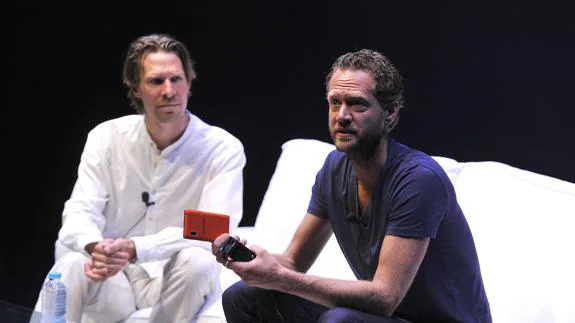

Sections
Highlight

NURIA TRIGUERO
Friday, 15 September 2017, 10:31
Compartir
EmpoderaLive, the social innovation and empowerment conference which took place in Malaga this week, witnessed the potential sustainable future of smartphones. Fairphone, a creation by Dutch innovator Bas van Abel, is an attempt to challenge the way that phone manufacturers operate and create a smartphone that is long-lasting, easily repaired and made from sustainably-sourced materials.
Bas van Abel questions the way in which established, global phone producers such as Apple and Samsung design and produce their devices, which often break beyond repair within as little as 18 months. Our aim is to make Fairphone last five years, he says, aiming to buck the trend of short-life phones and create a phone that will be more environmentally and financially sustainable.
Despite his ambitions, van Abel is not negligent of the obstacles that his company and project face. He understands that the financial survival of his company, among the well-established competition, is not an easy endeavour, but he explained what seperates Fairphone from other competitors in the market, in particular its unique, forward-thinking, ethical awareness.
Creating a long-lasting phone is not the only thing on van Abels agenda. Unlike other smartphones, Fairphone can be easily repaired. This is achieved through the production process, which uses fewer parts which can be easily removed and replaced if faulty.
Fairphone focuses as much on the sourcing of materials and labour as it does on the physical design of the phone. This enables the phone to maximise sustainability from the very start of the process right until the end of the phones life.
A phone has around 1,200 parts; understanding the supply chain and the labour of those involved in each stage is vital, he says; the metals used in the production of phones come from all parts of the world, particularly Africa, where child labour and social conflict is rife. Fairphone does not simply aim to avoid these areas: Then we would be changing nothing. Instead, they look to work with these countries and particularly the areas where they could have the largest positive impact.
Fairphone is not just a distant concept, but something very real. The second version is now available on their website and from other online distributors for 529.34 euros. During its pre-sale period, the company raised a staggering 10 million dollars.
Fairphone was perhaps the standout presentation on the second and final day of the EmpoderaLive conference which began on Monday. A broad spectrum of themes were covered including the digital divide in Africa where the NGO Internet Sans Frontières works to achieve a free and open internet which is accessible to everyone, according to the organisations director, Julie Owono, who spoke on Tuesday.
Other speakers included architect and engineer, Carlo Ratti, who explained the concept of intelligent cities in which the people are the driving force in finding solutions to urban problems.
Publicidad
Publicidad
Publicidad
Publicidad
Reporta un error en esta noticia
Necesitas ser suscriptor para poder votar.